13 Most Disturbing Movie Dystopias
Cinema is full of dark visions of the future. Here are the ones we're really hoping never actually happen...
This article comes from Den of Geek UK.
Why are we so drawn to dystopian visions of our future? There’s something compelling about these gritty, dirty, hopeless settings of oppressive state control that keeps us coming back to them time and time again in books, film and TV.
It’s probably schadenfreude. We see the poor downtrodden masses and think, “There but for the grace of random fluctuations in the space/time continuum go I”. Either that or we just like to get a heads up on what the real future is almost certianly going to look like.
Some of the societies listed below got grim and grimy because of circumstances way beyond people’s control, though most came about through our collective greed, ingenuity and obsession with robots. Basically we’ve only got ourselves to blame. If you don’t want your great great grandchildren to have to live in a test tube and wear steam-punk trenchcoats everywhere, act now to stop the future looking anything like this…
The Matrix
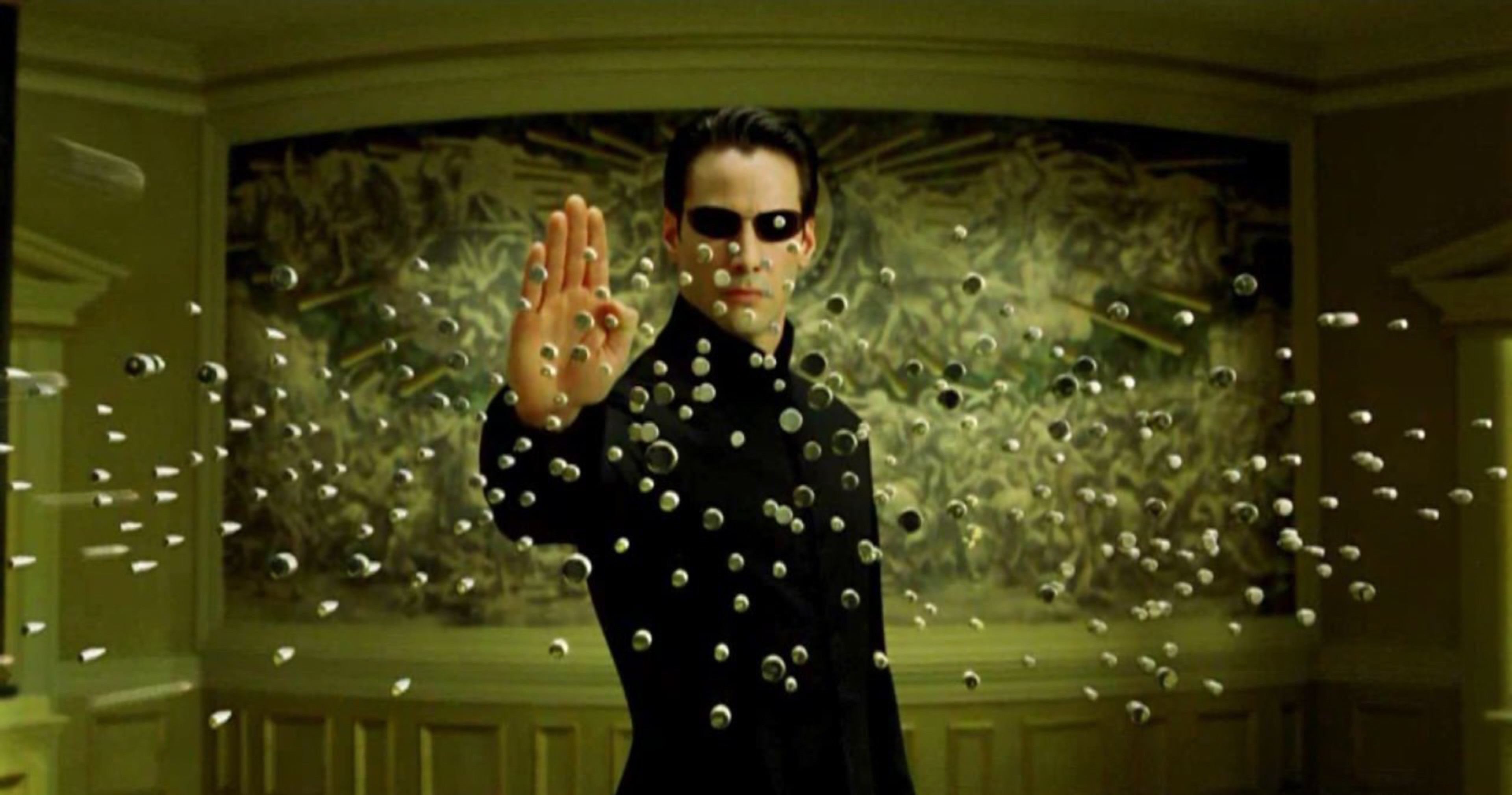
“Throughout human history, we have been dependent on machines to survive. Fate, it seems, is not without a sense of irony.”
At first glance, the world of The Matrix seems harmless enough. Life as normal, boring everyday humdrum existence. People drive their cars, go to work, eat delicious steaks. The whole shebang.
But all that’s just an illusion. The reality is darker and much more horrific. Our world is merely a simulation, and we are nothing more than organic batteries, hooked up to sinister machines, providing power for our spidery robot overlords.
further reading: What Went Wrong With The Matrix Sequels?
We are their slaves, confined and suffering terribly, and we don’t even know it. Sure, there’s an underground group of activists working to free the human race and wake us from our slumber, but let’s face it, it’ll take more than a few cool slowmo action sequences and some badly phrased cod-philosophy to save the world. We’re doomed.
RoboCop
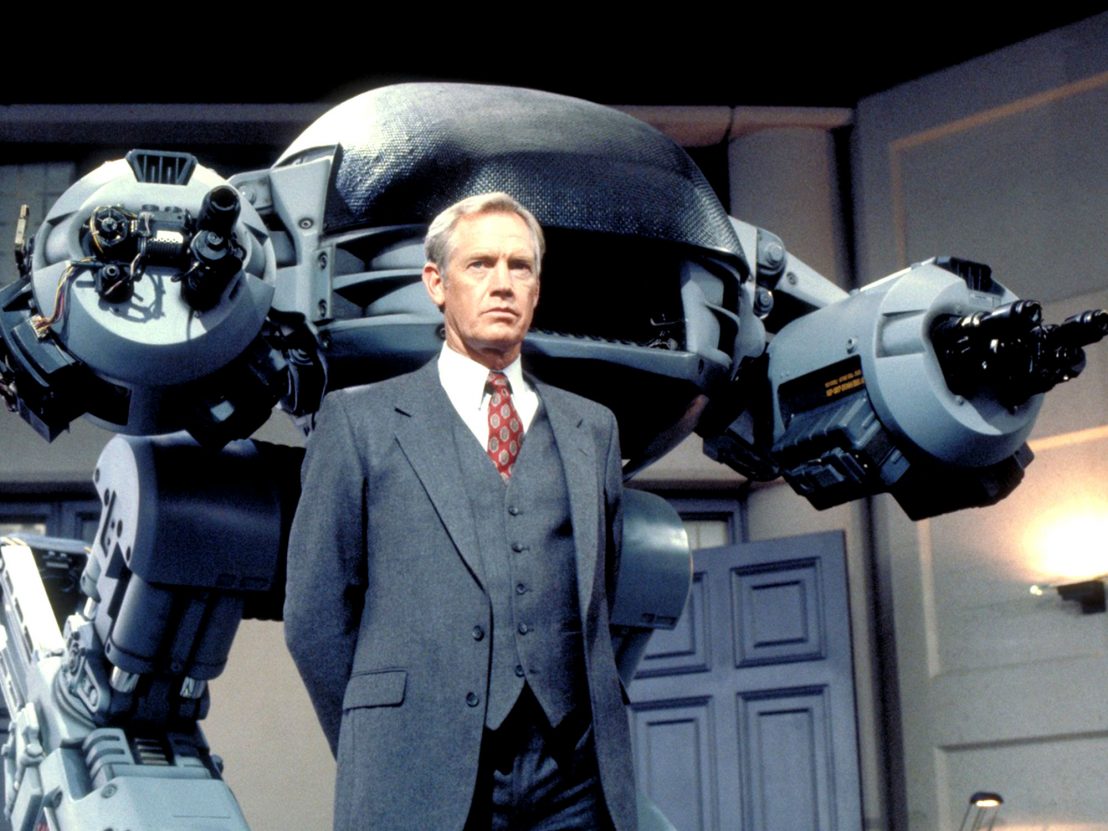
“Somewhere there is a crime happening.”
Don’t you just hate evil, faceless corporations? Unethical business practices, sneering suits, rampant greed – RoboCop’s OCP has it all. And though they may not run the whole world, they do a fine job of ensuring that Detroit is a desolate hole. Gangs rule the streets, the police are on strike and the quality of life is pretty damned low. All this while the crooked 80s-style yuppies wallow in drugs and line their pockets.
further reading – RoboCop: The Franchise of Diminishing Returns
Enter RoboCop – part man, part machine, all awesome. While most of the city’s police force is on strike, leaving crooks to overrun the litter-strewn streets, he and his partner do their best to restore law and order. It’s a hopeless task, of course, but at least they’re trying, which is more than can be said for most of the businessmen in charge.
Idiocracy
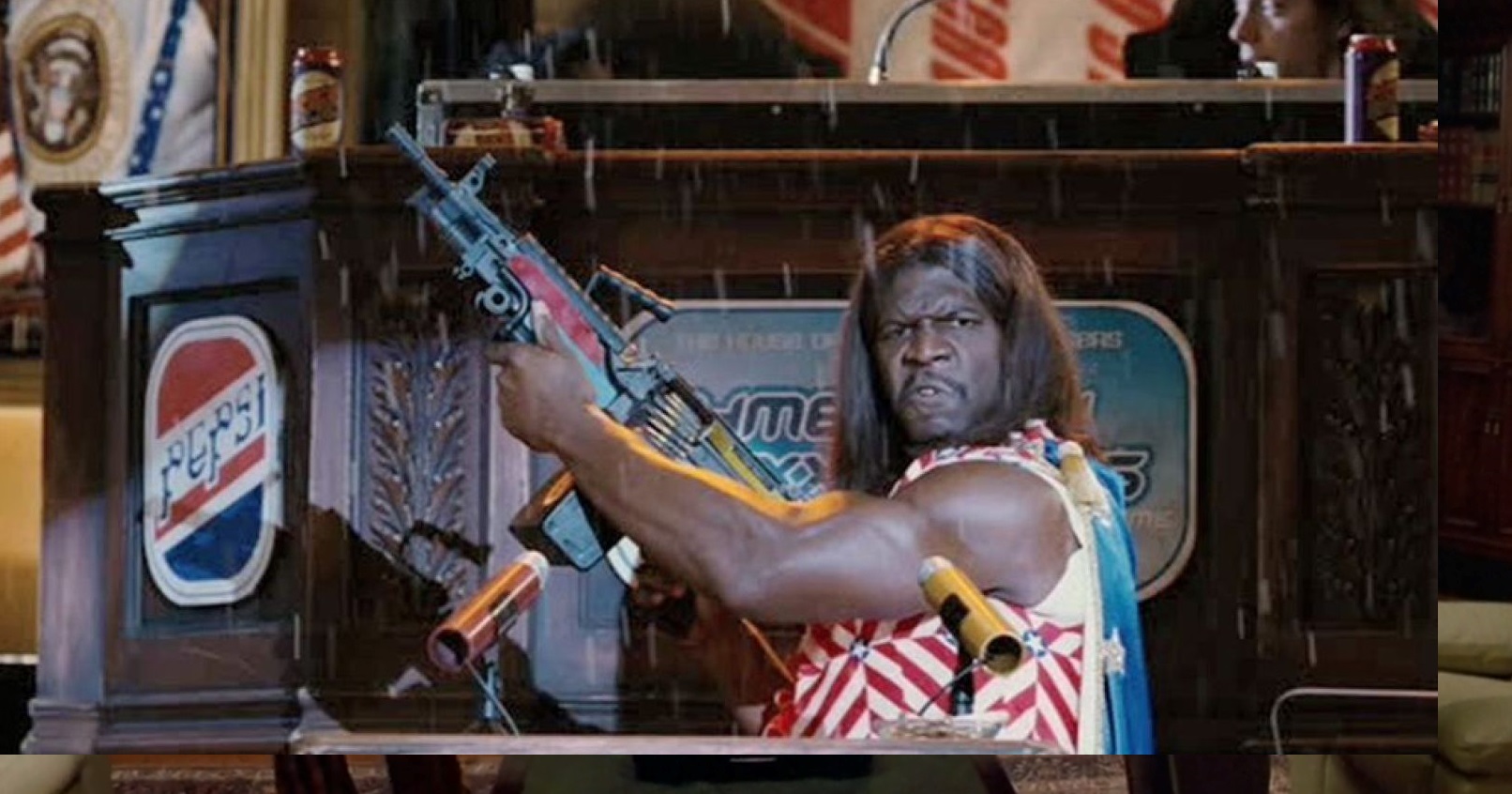
“But the English language had deteriorated into a hybrid of hillbilly, valley girl, inner city slang, and various grunts…”
According to this film, the future is dumb. I mean really dumb. America of the 26th Century is a terrible, stupid place to live if you have an IQ over 85. The idea is that if stupid people outbreed intelligent people, then this is the sort of society we’ll be stuck with in the far flung future.
This is a world where the most popular show on TV is called Ow My Balls, and is exactly as highbrow as you’d expect it to be. Doctors, lawyers and police officers are all morons with incredibly annoying whiny voices and gormless laughs. No culture, no achievements, nothing worthwhile. It’s an intellectual’s nightmare where the President of America is a blowhard celebrity and everyone worships reality TV. Wait a minute…
Children Of Men
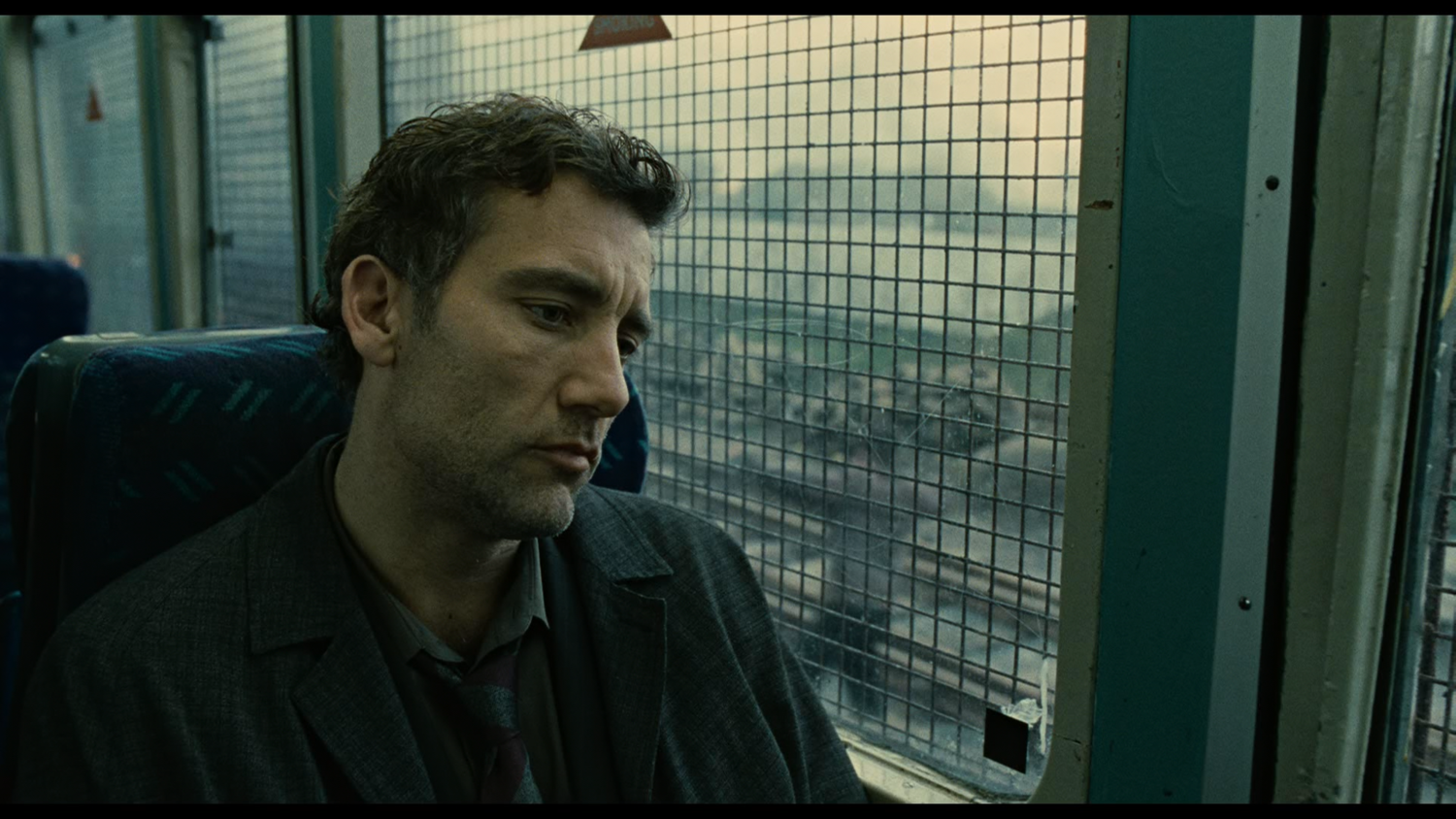
“I can’t really remember when I last had any hope, and I certainly can’t remember when anyone else did either.”
Children Of Men is set in a world where women have become infertile and babies are no longer born. Mankind simply gives up all hope for the future and everything seems completely pointless. The government struggles to keep control of the rioting populace, and Clive Owen trudges all over the place battling existential angst.
The scariest part of all this is that it’s set so close to our own time, only a generation away. All the scenes of rioting and civil unrest seem eerily familiar and ring especially true given recent political events.
further reading: The Recognizable Future of Children of Men
The only vaguely futuristic elements are the occasional gadget and the digital newspaper, which we’re probably not far off from anyway. The world of Children Of Men feels like it could happen tomorrow.
V For Vendetta
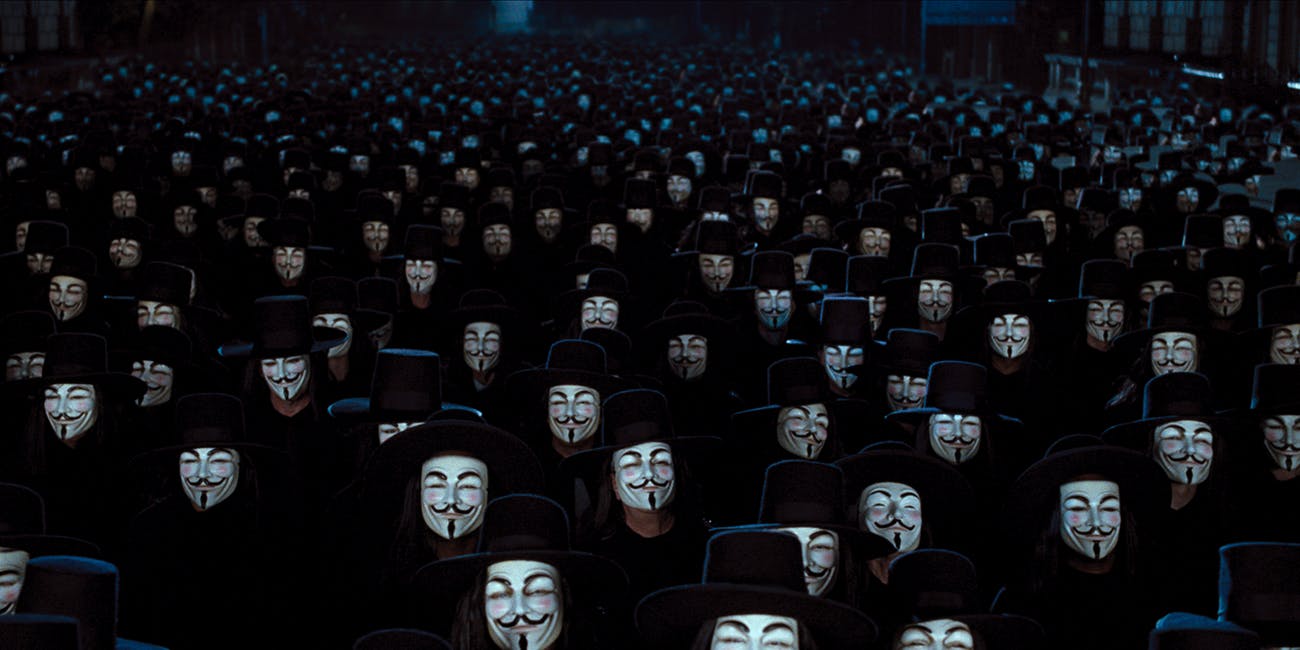
“England prevails!”
Fascism is an excellent bugbear. There’s nothing quite like the sneering thugs of a totalitarian regime to get an audience booing and hissing their socks off. The events of World War II, though over 60 years old now, still resonate strongly today, and nowhere is this more evident than in our visions of dystopian futures. Black-clad jackbooted figures march through our nightmares and into our films.
Based on Alan Moore’s Thatcher-satirising comic, Vendetta’s Britain is a country ruled by fear. A curfew is enforced every night, anyone who speaks out against the regime disappears, and all you get on TV is propaganda designed to brainwash and oppress you.
further reading: We’re Closer Than Ever to V For Vendetta’s Future
Thankfully there’s hope in the form of your friendly local freedom fighter. You know the future’s dismal when only violence will save you from violence.
Equilibrium
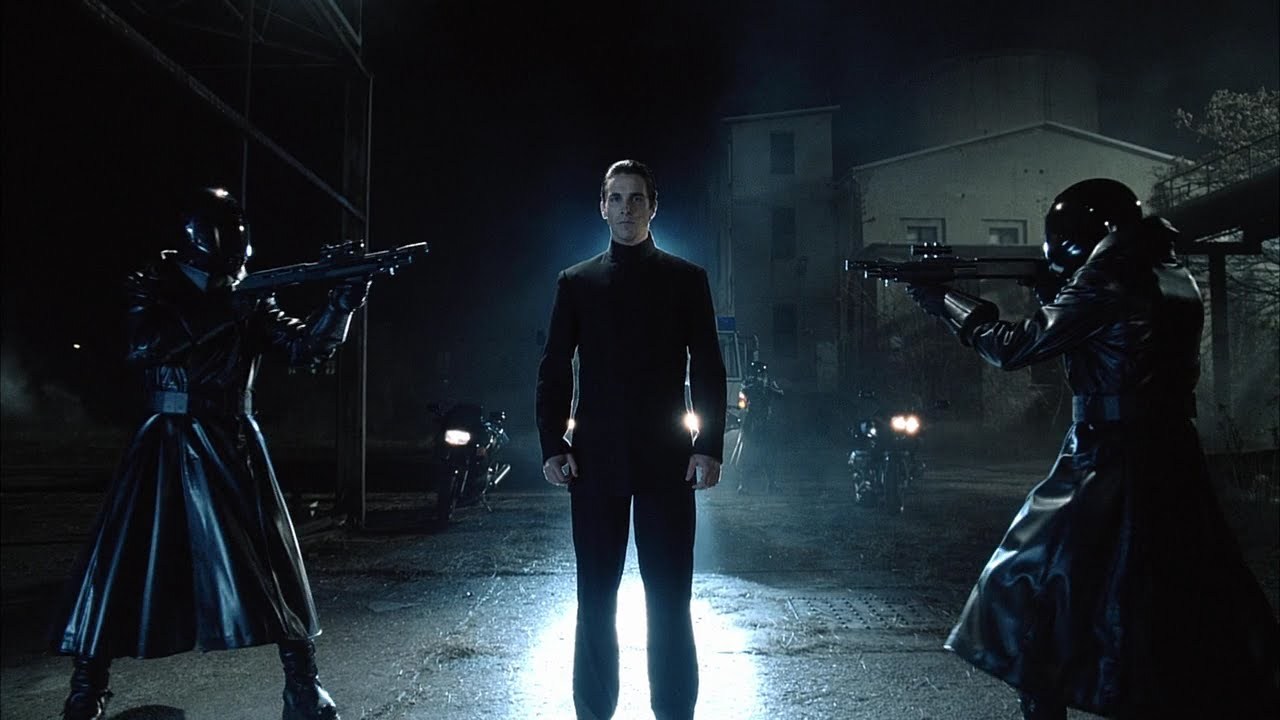
“Without love, without anger, without sorrow, breath is just a clock ticking.”
In the future, everyone is equal. War, crime and hatred have been eradicated. But at what cost? It’s not just negative emotions that have been purged: there’s no more love, no more friendship, no more laughter. By taking daily doses of an emotion-suppressing drug, mankind has essentially turned itself into a race of automatons.
They don’t live, they simply exist. And if anyone doesn’t take their meds, there are a group of enforcers called Grammaton Clerics seeking out sense offenders to eradicate the threat.
As with V For Vendetta, there is some hope here. There’s an underground movement fighting to preserve works of art and to bring down the emotion-suppressing government. It seems like an insurmountable task, though, when faced with hordes of leather-clad, emotionless drones.
Blade Runner
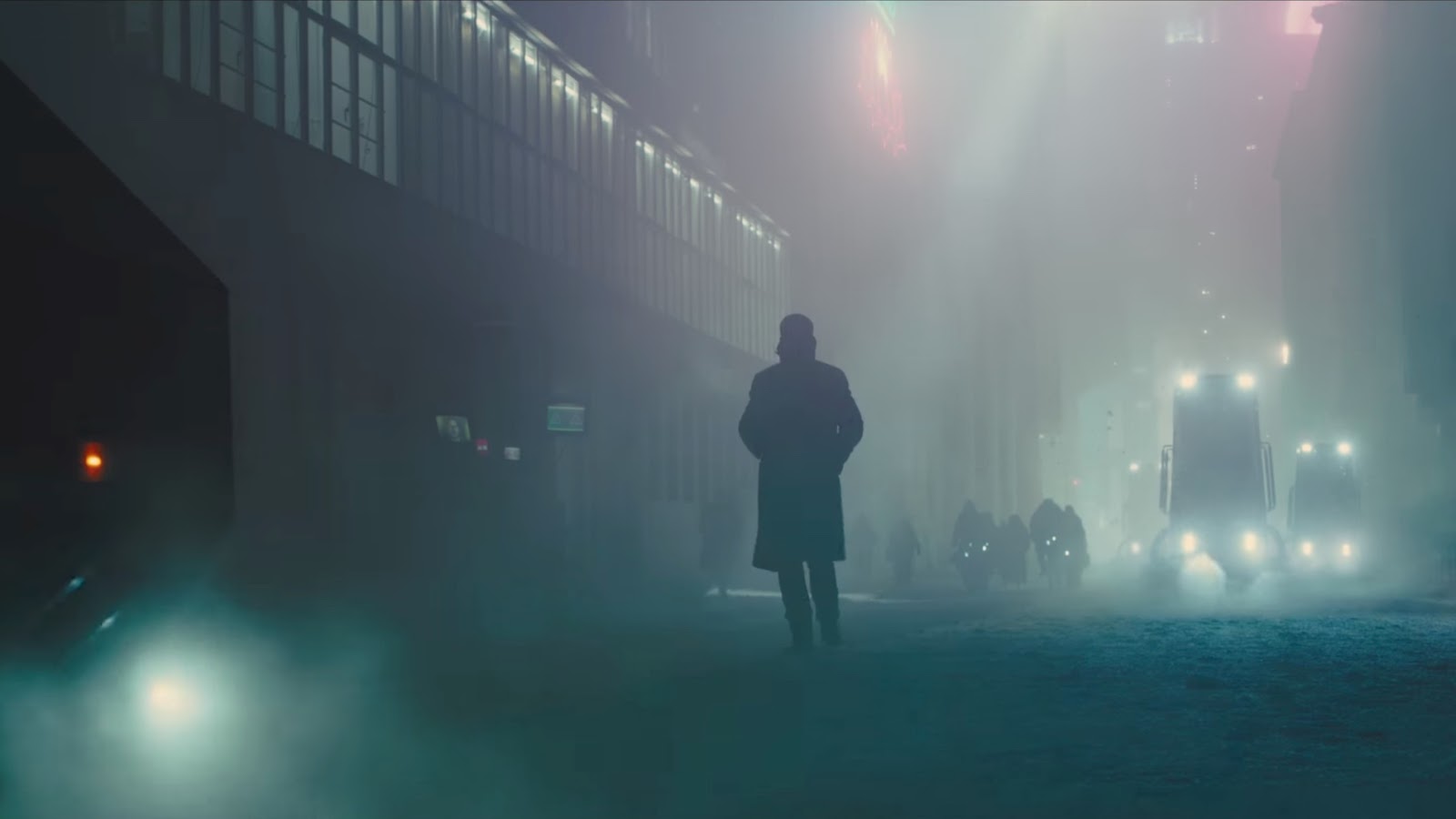
“Commerce is our goal here at Tyrell. ‘More human than human’ is our motto.”
Blade Runner’s setting seems like pure sci-fi noir: crowded streets, dirty overcoats, perpetual rain. There’s a thick layer of smog hanging over everything and, in true noir fashion, almost all the light sources are flickering neon. Then again, it also seems frighteningly realistic if you’ve ever spent time in one of the world’s megacities.
Though it’s not talked about as explicitly in either film as it is in the book they’re both based on, there are almost no animals left in the world. All that’s left are cleverly created robotic equivalents. There’s an overwhelming sense of despair and mortality, which is fitting considering the replicants’ motivation.
further reading: How Blade Runner’s Problems Made it a Better Movie
Though there doesn’t seem to be a high risk of death or an oppressive state government, pretty much everyone in the film seems miserable, hollowed-out, and empty.
Brazil
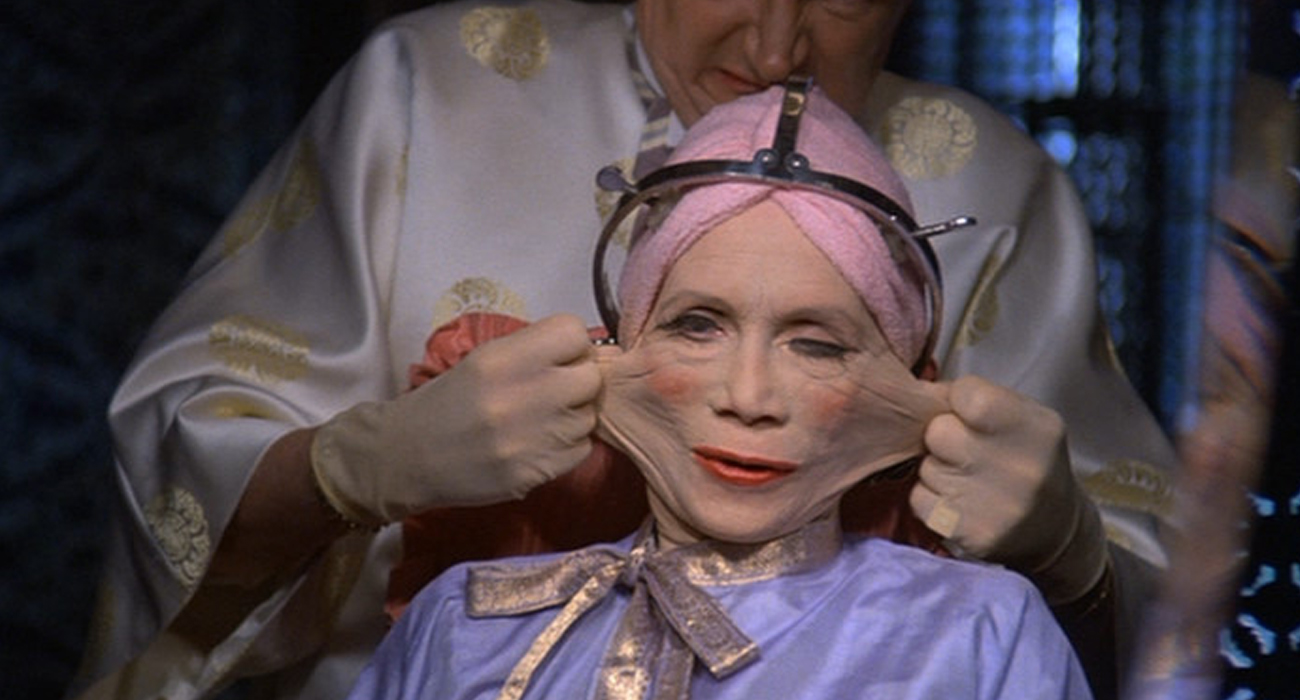
“Don’t fight it son. Confess quickly! If you hold out too long you could jeopardize your credit rating!”
Sam Lowry dreams of being something more than the petty bureaucrat he is. He dreams of adventure, love and a worthwhile life, while the world around him slowly goes to hell in a handbasket.
It’s difficult to put a finger on what the worst part of Brazil‘s society is. Is it the random terrorist attacks? The crippling bureaucracy? The horrifying cosmetic treatments? Actually, yeah, it’s probably that.
In this world, even your daydreams aren’t enough to escape the horror of everyday life. It’s a surreal trip from start to finish, a satirical love song to George Orwell’s archetypal dystopian novel 1984. Which leads us nicely to …
1984
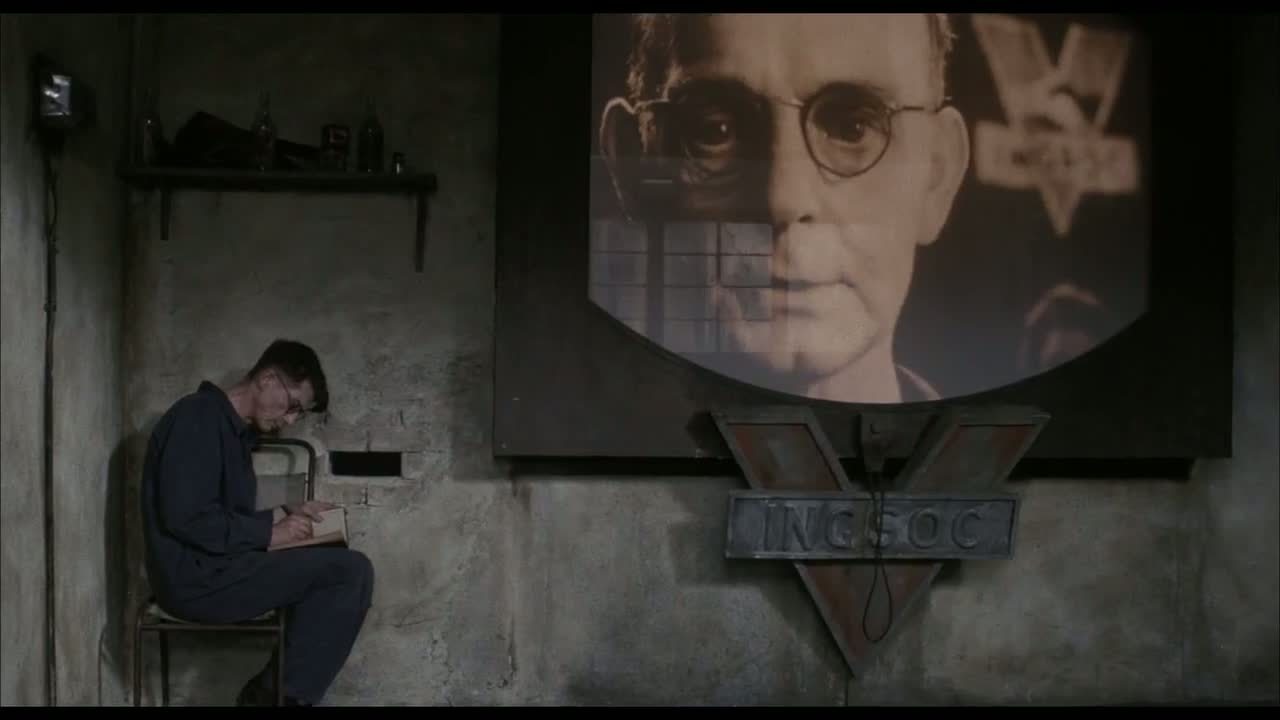
“If you want a vision of the future, Winston, imagine a boot stamping on a human face forever.”
You can’t talk about dystopias without paying dues to the biggest of brothers. Orwell’s novel was revolutionary, Michael Radford’s adaptation compelling.
You probably know the story, even if you haven’t read or seen it: man versus state, freedom versus oppression, John Hurt versus Richard Burton. The proles live in utter squalor, not allowed to think or act for themselves.
Their every move is monitored by video screens, a situation that rings true today in this world of CCTV cameras on every corner and trackers in every pocket. We’re not quite living in a Big Brother state yet, but you can see why people might worry we’re heading that way.
This is the ultimate story of the failure of a state to protect its people, and the failure of a people to keep its state in line. Both the book and film versions gave us concepts such as thoughtcrime, inspired an iconic Apple ad, and indirectly led to a certain TV series we all love to hate. No, not Room 101, the other one.
WALL-E
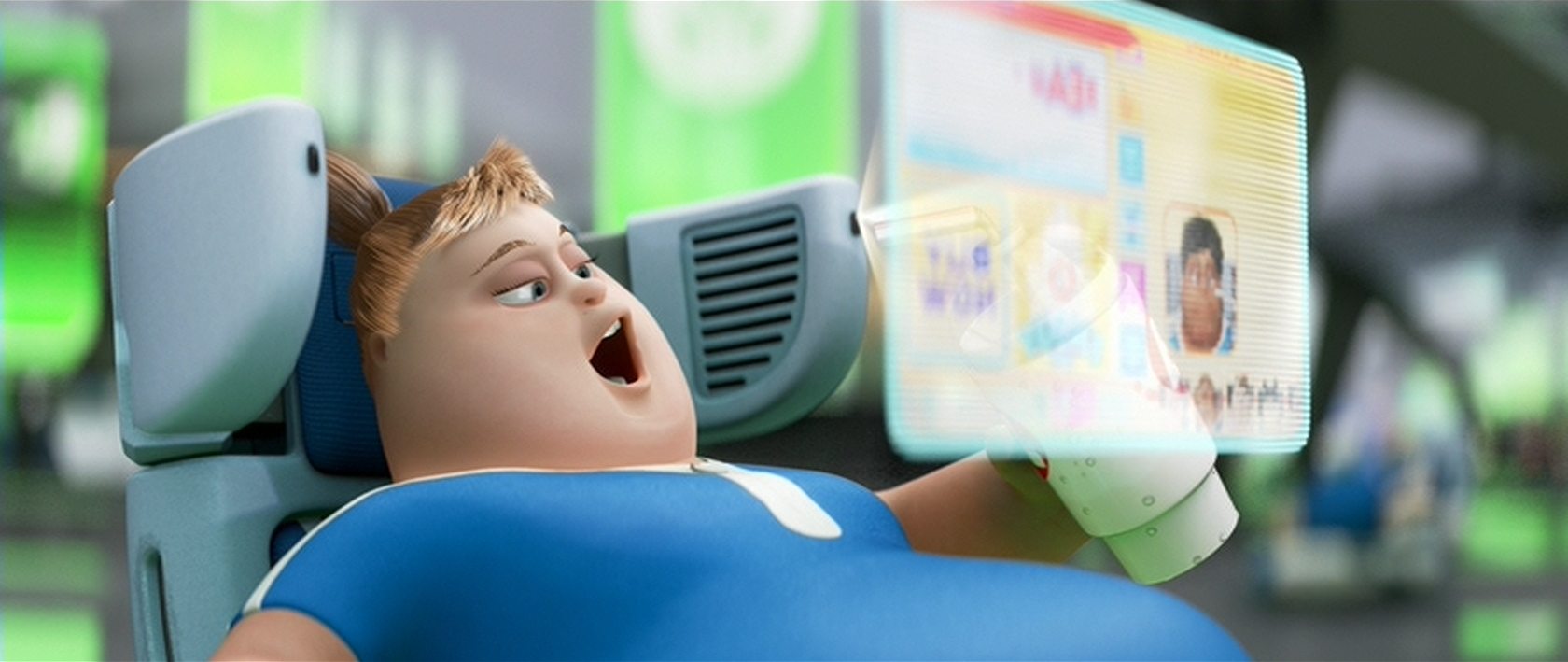
“Earth is amazing! These are called “farms”. Humans would put seeds in the ground, pour water on them, and they grow food – like, pizza!”
Weirdly, worryingly, the most believable of the bunch, WALL-E‘s future sees Earth reduced to a giant dustbin.
It’s entirely our fault, too, buying too much stuff and throwing it all away in a disposable culture that led to us having to leave the planet behind in a space cruise ship designed to keep us fat and happy long enough not to care. Humans of the future never leave thier chairs, only eat junk food and endlessly consume digital advertising through a screen held a few inches from their faces… Wonder where Pixar got that idea from?
The Hunger Games
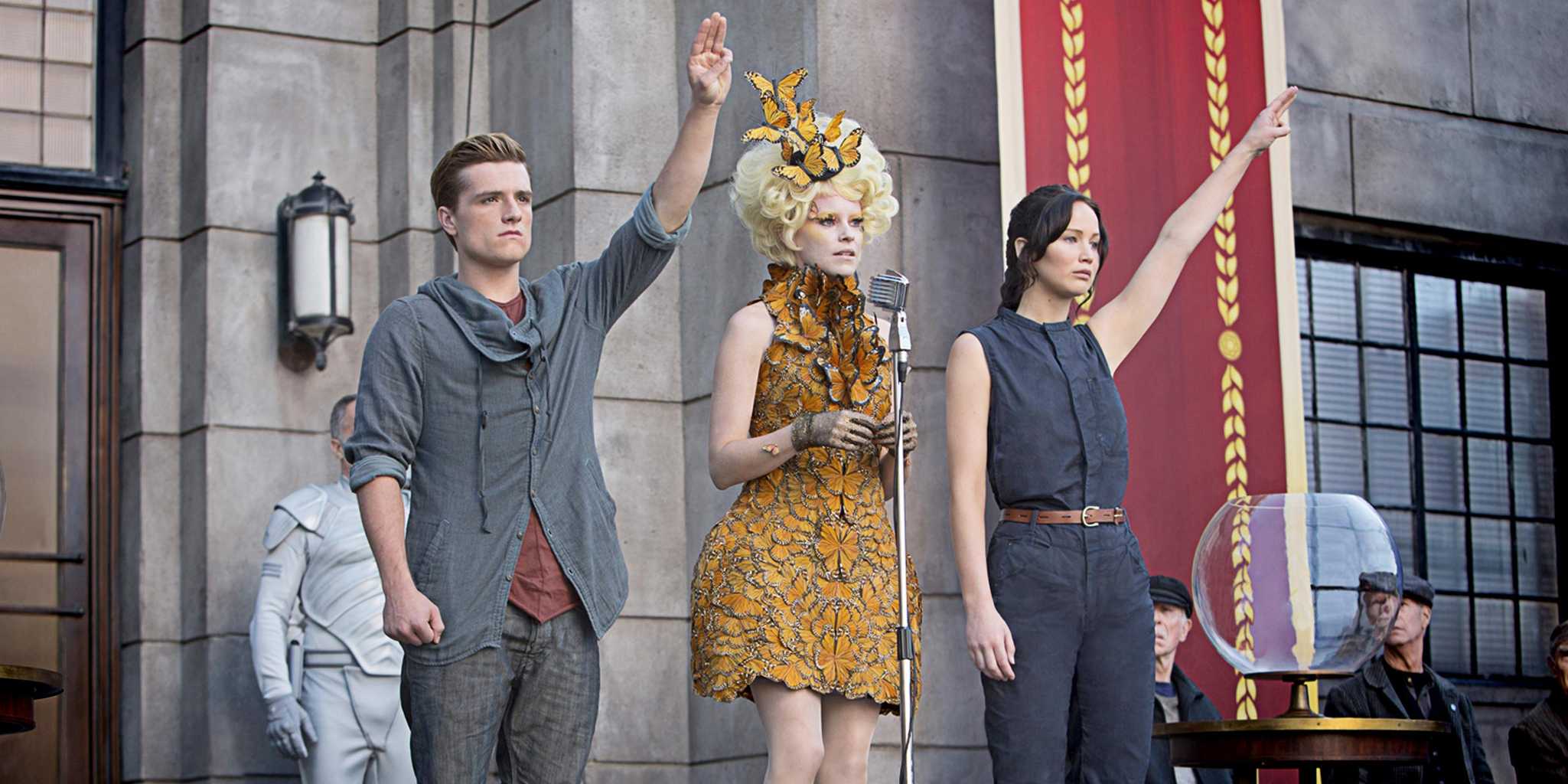
“What if everyone just stopped watching?”
Somewhere between I’m A Celebrity Get Me Out Of Here and Fortnite, the world of The Hunger Games is another dystopia that doesn’t feel that far off. Plenty of others have imagined a future ruled by reality TV deathmatches (The Running Man, Deathrace, Battle Royale, even The Purge), but few have had the time and space (or sequels) to delve so deeply.
The Hunger Games shows a world without resources – where the rich live in candy floss castles and the poor work the fields, competing in televised fights for the amusement of the upperclasses. Sure, the films offer a glimmer of hope in the form of teenage rebelion, but it’s still not exactly somewhere we’d like to live.
A Clockwork Orange
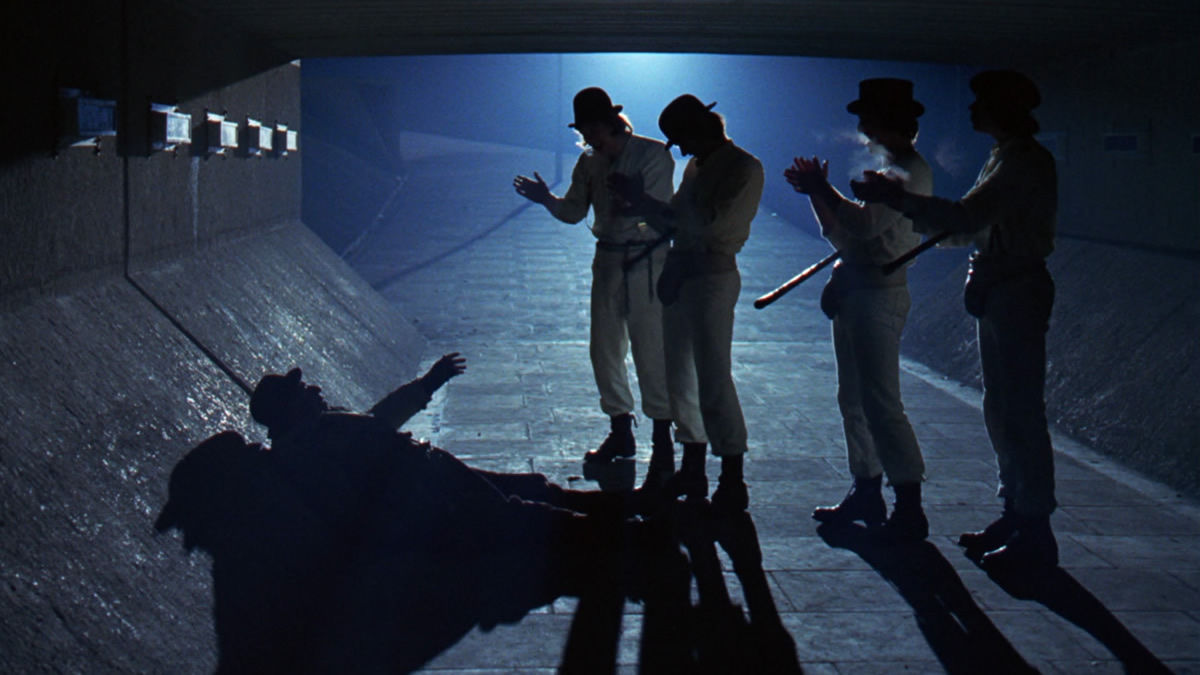
“I can’t see much in the future, and I feel that any second something terrible is going to happen to me.”
Stanley Kubrick’s classic film, based on Anthony Burgess’ novel, doesn’t actually show us much of the future. Focussing mostly on young thug Alex, the story sticks to him close enough to keep things personal – although what we do see around the edges looks pretty horrific.
Language is dead. Britain is broken. The young prey on the old, and the state controls everything – eventually using violent psychological conditioning to try and reform Alex. Less of a glimpse into the future than a savage expose of the present, A Clockwork Orange is meant to be a warning, an indictment, a slap in the face.
Since the film came out in 1971 and things have arguably already gotten a lot worse, it doesn’t seem like it worked…
Mad Max: Fury Road

“You know, hope is a mistake. If you can’t fix what’s broken, you’ll go insane.”
Slightly more extreme than the others on this list, Mad Max: Fury Road (and its predecessors) is set in a post-apocalyptic wasteland where water and petrol are commodities to be fought over. Everyone has devolved into a primal state that accepts violence as the norm – with savage tribes of desert racing barbarians duking it out for kicks and survival.
Max himself is a sort of hero – but there’s no hope to be found in George Miller’s world. Max might survive, he might beat the bad guys and he might give us some seriously cool set-pieces, but nothing is going to get any better.